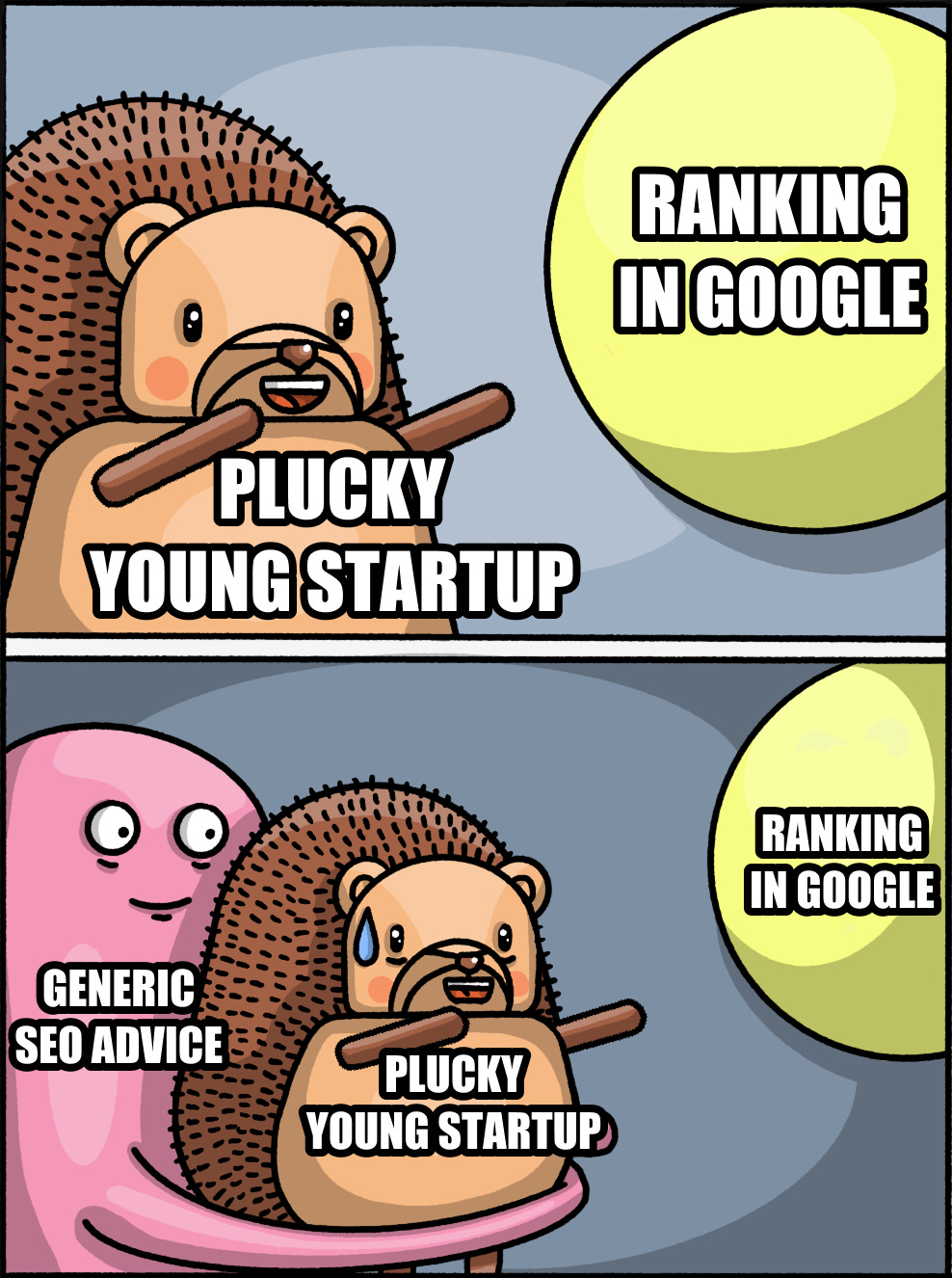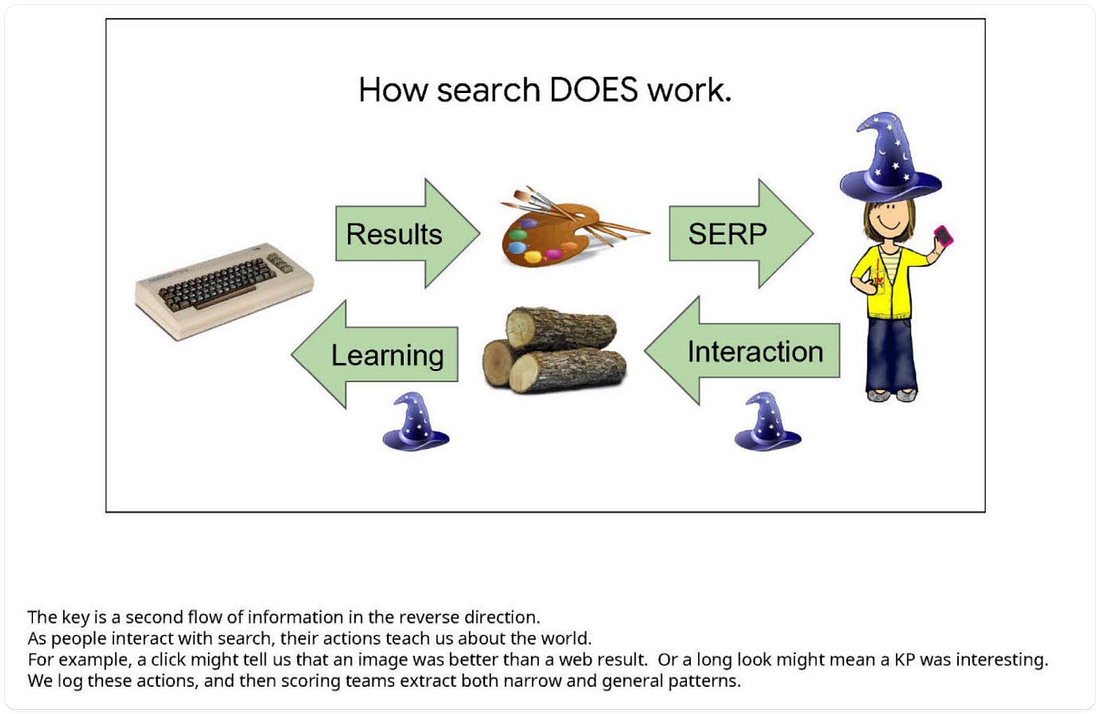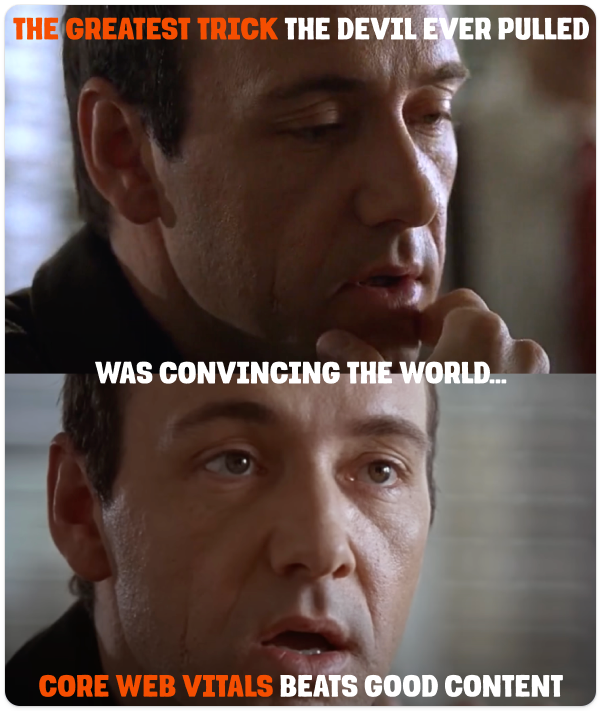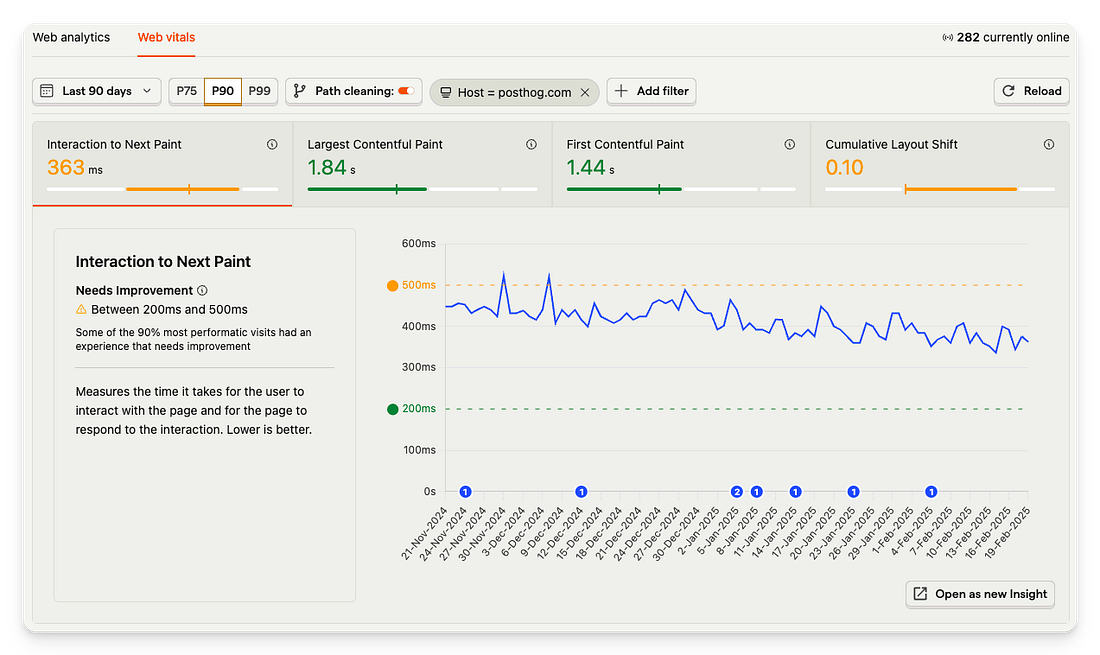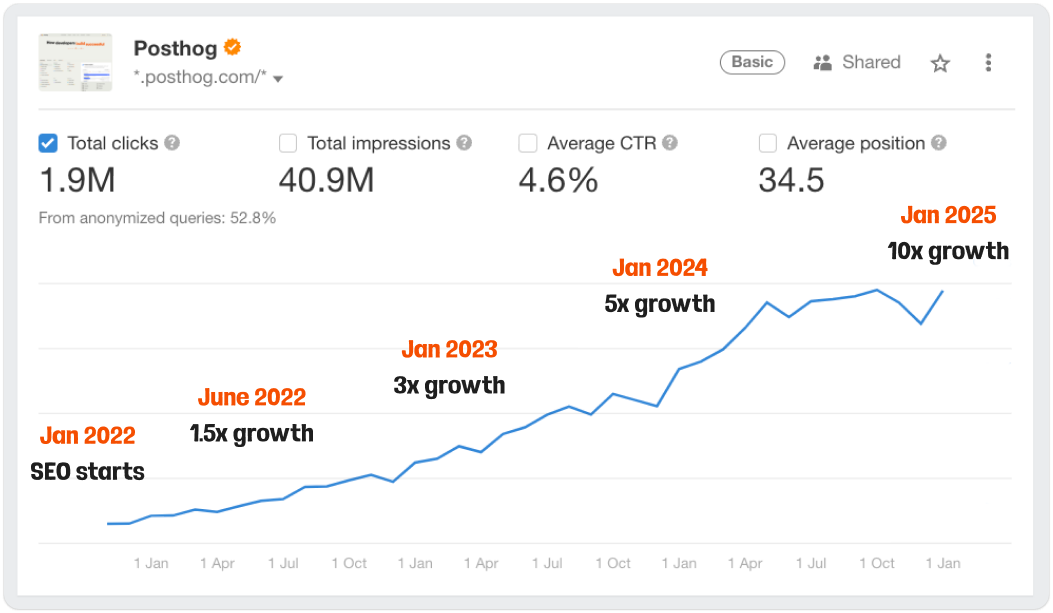Non-obvious SEO advice for startups
There’s no shortage of SEO advice for startups out there. Things like:
This kind of generic, table stakes stuff gives you lots of problems to obsess over, but it doesn’t help you make decisions. What follows is my opinionated take on how startups should think about SEO, particularly the content marketing side of things. It’s based on ~20 years experience working in publishing as a writer, editor, and #thinkboi, and what we’ve learned growing PostHog to 10s of millions in revenue.¹ It’s meant for early-stage software startups, though it’s hopefully broadly applicable to any startup that’s scaling up, too.
1. Start with defensive SEOSometimes you just need to rank for things so others don’t, such as:
This is why we have articles comparing PostHog and Sentry, or guides to open source analytics tools. Content like this can serve as sales collateral but it’s also high-intent, so it helps you acquire new users and supports word-of-mouth. Even if someone doesn’t end up using your product, they might tell someone else about it. Do this stuff early so competitors don’t swoop in first.
2. Use as few SEO tools as possibleOnly #SEOgurus need a complex stack of SEO tools. Here’s what I recommend for everyone else who is getting started:
That’s it. There are dozens of tools you can use for different tasks, but 90% of your problems can be solved using the above.
3. Low volume + a problem you solve = winningIt’s way easier to rank for 100 low volume searches than a handful of lucrative, popular ones, especially early on. Here’s an example:
Now imagine 100 similar pages. That’s ~185,000 users visiting our website each year, each of whom has a very specific problem we can solve. This is the ultimate power of SEO and why it’s worthwhile. There are a near infinite number of problems people search for out there, you just need to find them. Getting good at ranking for low competition keywords will make it easier to rank for high competition ones, too.
4. Google is dumber than you thinkI don’t mean it isn’t sophisticated (it obviously is), but it’s easy to get lost in the web of pet theories about ranking factors. If you want to sound smart at parties, and make good decisions about SEO, you only need to know two things:
We know this because Google admitted as much in legal exhibits:
What does this mean for you?
5. Solve your user’s real problemsYou can stumble upon small SEO wins by creating content that helps solve the real problems of your actual users. So, before you dive into keyword research, topic clusters, topical authority, and other buzzy SEO-isms, go talk to your users and help them out. One of the first tutorials anyone wrote for PostHog was this event tracking guide. It now generates around 1,000 visitors from search every month, but it was never written with ranking in Google in mind.
6. You don’t need perfect Core Web VitalsSeriously folks, stop trying to achieve perfect scores on your PageSpeed report. Core Web Vitals, for the uninitiated, are three metrics that Google uses to report on page experience: Largest Contentful Paint (LCP), Interaction to Next Paint (INP), and Cumulative Layout Shift (CLS). But their impact on rankings are frequently overstated. Google doesn’t, for example:
We know this, again, because Google has said as much. In a 2023 video, a Google dev advocate noted [emphasis added]:
This has been reiterated by John Mueller, Google’s search relations team lead, on numerous occasions:
For the record, here’s the not-so-perfect web vitals report for our website – generated by the web vitals feature in PostHog. We need to improve our “Interaction to Next Paint” further, but this hasn’t stopped us being successful.
7. Your “great content” probably sucksI can’t sugarcoat this one. “What makes content good?” is too broad a topic to tackle here, but ask yourself… Is your content really “great”? Not share it on LinkedIn with a hashtag great, but “share it with a friend you like and respect” great? Be honest with yourself because “our content is great but it doesn’t rank” is the #1 complaint of anyone struggling with SEO, and it’s true less than 10% of the time. Some mental checklists I like here:
8. Double down when you have product-market fitPeople often say you should invest in SEO as early as possible because it takes time to pay off. This is half right. Yes, SEO is a long-term play, but it’ll pay off faster than you expect if your product has real traction in a specific audience. We didn’t start investing in SEO at PostHog until January 2022, two years after it was founded. By this time, the company had:
In short, we had rock solid product-market fit. This made my job much easier. I didn’t have to throw mud at a wall, and we already had a good website with some authority on the right topics thanks to our public docs. Above all, there was no danger of pivoting to a new product or audience, so I knew my long-term bets would have time to pay off. It took three months for our earliest work to show meaningful results. We started to see serious growth after six months. After a year we’d tripled traffic from SEO.
9. Yes, your startup still needs SEOAI is the future right, so why bother investing in SEO? I suck at predicting the future, but here are the facts right now:
Obviously, it would be foolish to bet the farm on SEO, but that would still be true if LLMs didn’t exist.
10. SEO is mostly about good habitsSuccessful SEO strategies are built on being relentless and disciplined. This means:
And, yes, while there are ways to cheat your way to the top, I guarantee Google will find you out eventually. Words by Andy Vandervell, who ranks top of Google for his own name. 📖 Certified #greatcontent
1 I’m not going to list my CV here – see LinkedIn for that – but websites I’ve managed have ranked top of Google for “best black Friday deals” on Black Friday, “best Netflix series” in the middle of the pandemic, and “iPhone rumors” back when a new iPhone was still a big deal. I view myself as a writer and editor with a lot of SEO knowledge, rather than a full-time SEO expert, but I’ve been at this for a while. 2 Here’s a good example: I recently noticed people searching for “posthog SDK” were ending up at this forum index page instead of our docs. To fix this, I opened a PR on our repo that renamed an existing docs page to ‘PostHog SDK comparison’. Within days, it was ranking top for that search, so people will end up in the right place now. 3 This is particularly pertinent given all studies of AI Overviews in Google indicate they show most often on information keywords (i.e. questions, definitions, etc.). |
Similar newsletters
There are other similar shared emails that you might be interested in:

